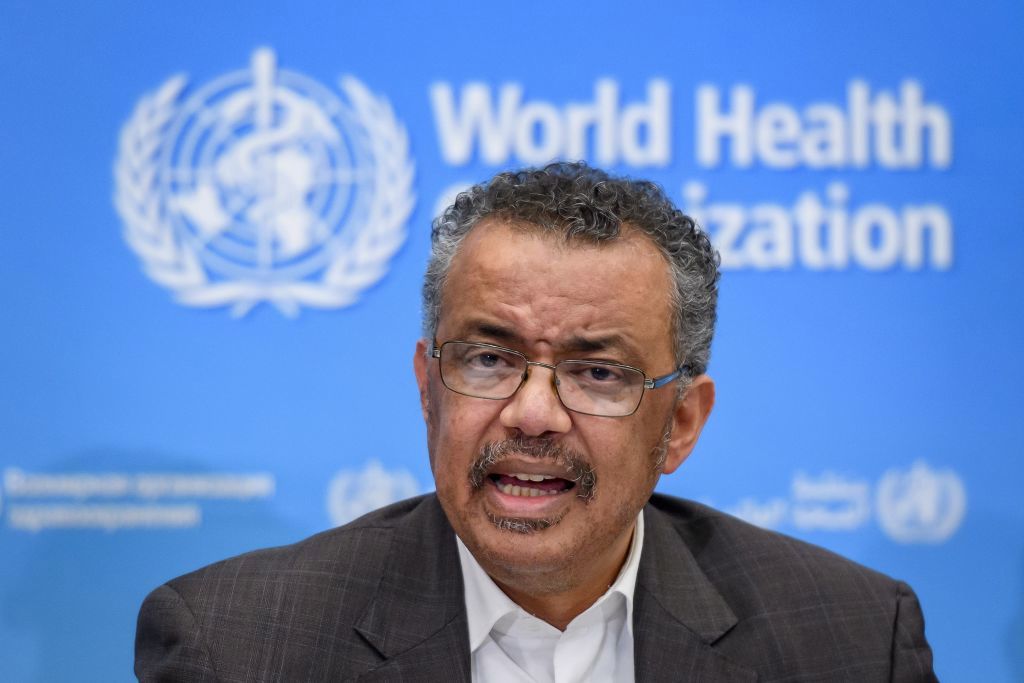
The World Health Organisation (WHO) says 73 countries have warned that they are at risk of stock-outs of Antiretroviral (ARV) medicines as a result of the COVID-19 pandemic.
WHO in a statement posted on its website said countries should seek innovative ways to mitigate the impact of disruptions and keep services going.
It said the 73 countries warned about the risk of stock-outs of ARV, according to a new WHO survey conducted ahead of the International AIDS Society’s biannual conference.
“Twenty-four countries reported having either a critically low stock of ARVs or disruptions in the supply of these life-saving medicines.
“The survey follows a modelling exercise convened by WHO and UNAIDS in May which forecasted that a six-month disruption in access to ARVs could lead to a doubling in AIDS-related deaths in sub-Saharan Africa in 2020 alone.
“In 2019, an estimated 8.3 million people were benefiting from ARVs in the 24 countries now experiencing supply shortages.
“This represents about one third (33 per cent) of all people taking HIV treatment globally. While there is no cure for HIV, ARVs can control the virus and prevent onward sexual transmission to other people.
“A failure of suppliers to deliver ARVs on time and a shut-down of land and air transport services, coupled with limited access to health services within countries as a result of the pandemic, were among the causes cited for the disruptions in the survey.’’
The statement quoted Dr Tedros Ghebreyesus, WHO Director-General as saying: “The findings of this survey are deeply concerning.
“Countries and their development partners must do all they can to ensure that people who need HIV treatment continue to access it.
“We cannot let the COVID-19 pandemic undo the hard-won gains in the global response to this disease.’’
According to data released today from UNAIDS and WHO, new HIV infections fell by 39 per cent between 2000 and 2019.
HIV-related deaths fell by 51 per cent over the same time period, and some 15 million lives were saved through the use of antiretroviral therapy.
Over the last two years, the annual number of new HIV infections has plateaued at 1.7 million and there was only a modest reduction in HIV-related death, from 730,000 in 2018 to 690,000 in 2019.
READ ALSO: WHO reacts to a video of TB Joshua healing COVID-19 patient
Despite steady advances in scaling up treatment coverage – with more than 25 million people in need of ARVs receiving them in 2019 – key 2020 global targets will be missed.
HIV prevention and testing services are not reaching the groups that need them most. Improved targeting of proven prevention and testing services will be critical to reinvigorating the global response to HIV.
According to the statement, COVID-19 risks exacerbating the situation and WHO recently developed guidance for countries on how to safely maintain access to essential health services during the pandemic.
“The guidance encourages countries to limit disruptions in access to HIV treatment through “multi-month dispensing,” a policy whereby medicines are prescribed for longer periods of time – up to six months.
“To date, 129 countries have adopted this policy.
“Countries are also mitigating the impact of the disruptions by working to maintain flights and supply chains, engaging communities in the delivery of HIV medicines, and working with manufacturers to overcome logistics challenges.’’
In addition, it said at the IAS conference, WHO would highlight how global progress in reducing HIV-related deaths could be accelerated by stepping up support and services for populations disproportionately impacted by the epidemic, including young children.
In 2019, there were an estimated 95,000 HIV-related deaths and 150,000 new infections among children. Only about half (53 per cent) of children in need of antiretroviral therapy were receiving it.
A lack of optimal medicines with suitable paediatric formulations has been a longstanding barrier to improving health outcomes for children living with HIV.

